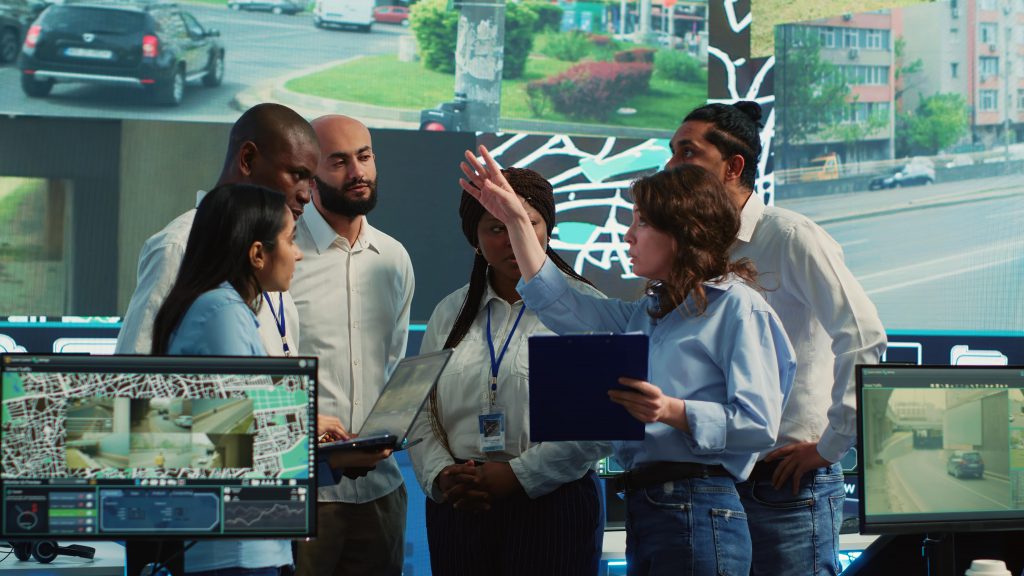The world of finance is changing fast. Technology is making banking easier, quicker, and smarter. This mix of finance and technology is called FinTech, and it’s shaping the future. From mobile payments to online loans, FinTech is transforming how we handle money. At the heart of this change are MBA graduates with a focus on FinTech. These leaders bring more than just business skills—they combine finance, technology, and new ideas to revolutionize banking. In this blog post, we’ll explore how MBA FinTech leaders are driving this exciting shift in simple English for everyone to understand.

What Is MBA FinTech and Why It’s Important
An MBA, or Master of Business Administration, is a degree that teaches people how to manage businesses. When it focuses on FinTech, it combines business skills with knowledge of finance and technology. MBA FinTech graduates learn about banking, digital tools, and how to lead teams. They understand money and how to use tech to make it work better for people.
Banking used to mean visiting a branch, filling out forms, and waiting days for things like loans. Now, with FinTech, you can send money or get a loan from your phone in minutes. MBA FinTech leaders are the ones making this happen. They don’t just run banks—they create new ways to manage money. Let’s see how they’re changing the game.
1. Making Banking Faster and Easier
One big way MBA FinTech leaders are revolutionizing banking is by speeding things up. They use technology to cut out slow, old-fashioned steps. For example, think about applying for a loan. In the past, you had to go to a bank and wait for approval. Now, FinTech apps can check your details and approve loans in hours—or even minutes.
MBA FinTech graduates know how to design these systems. They understand business needs and customer demands. They work with tech teams to build apps and tools that save time. This makes life easier for people and helps banks serve more customers without extra effort.
2. Bringing Banking to Everyone
Not everyone has easy access to banks, especially in small towns or poor areas. MBA FinTech leaders are fixing this problem. They use technology to bring banking to people’s phones. With mobile apps, anyone with a smartphone can open an account, save money, or pay bills—no bank branch needed.
For example, in many countries, people now use mobile payment apps like PayPal or local services to send money instantly. MBA FinTech experts create these solutions. They study markets, figure out what people need, and build tools that work for everyone. This opens up banking to millions who were left out before.
3. Keeping Money Safe with Smart Tech
As banking moves online, safety becomes a big concern. Hackers and fraud are real risks. MBA FinTech leaders are tackling this by using smart technology. They bring in tools like artificial intelligence (AI) to spot problems fast. For instance, if someone tries to steal money from your account, AI can notice strange activity and stop it.
These leaders also understand rules about money and privacy. They make sure banks follow laws while keeping customer data safe. Their mix of business and tech skills helps them protect people’s money in a digital world.
4. Creating New Ways to Pay
Cash is becoming less common. Today, people pay with cards, phones, or even watches. MBA FinTech leaders are behind these new payment methods. They see how people want to shop and design systems to match. For example, they’ve helped create “contactless” payments, where you tap your card or phone to pay without typing a PIN.
They also push for digital wallets, like Apple Pay or Google Pay, which store your card details securely. These ideas come from understanding both tech and customer habits. MBA FinTech graduates lead teams to turn these ideas into real tools that change how we pay.
5. Using Data to Understand Customers
Banks have tons of data—like how much you spend or save. MBA FinTech leaders use this information to make banking better. They analyze data to learn what customers want. For example, if many people save for travel, a bank might offer a special savings plan for vacations.
This isn’t just about numbers—it’s about making services personal. MBA FinTech experts use tech like AI to suggest products, such as loans or insurance, that fit your life. This makes banking feel helpful, not just a place to keep money.
6. Leading Change in Big Banks
Big, old banks can be slow to adopt new ideas. MBA FinTech leaders are changing that. They work inside these banks to bring in modern tools. For instance, they might convince a bank to launch a mobile app or use blockchain—a secure way to track transactions. They know how to manage projects, talk to bosses, and get everyone on board.
Their leadership skills help big banks stay competitive. Without these leaders, many banks would fall behind smaller, tech-savvy companies. MBA FinTech graduates bridge the gap between old banking and the digital future.
Real-Life Examples of FinTech Impact
Let’s look at some real changes MBA FinTech leaders have made. Companies like Paytm in India started as small ideas but grew huge by offering mobile payments. In Africa, M-Pesa lets people send money by text message, helping millions without bank accounts. In the US, apps like Venmo make splitting bills with friends simple and fun.

These successes come from leaders who know finance, tech, and people. MBA FinTech graduates have the training to spot opportunities and turn them into reality. They’re not just following trends—they’re creating them.
The Future of Banking with MBA FinTech Leaders
The future of finance looks exciting, and MBA FinTech leaders will keep driving it. New tech like cryptocurrency—digital money with no central bank—is growing fast. MBA FinTech experts are exploring how to use it safely. They’re also working on “smart contracts,” which use tech to automate deals, like buying a house.
Sustainability is another focus. These leaders are building green banking tools, like apps that track your carbon footprint when you shop. As the world changes, MBA FinTech graduates will adapt, bringing fresh ideas to keep banking useful and modern.
Why MBA FinTech Matters for You
For anyone interested in finance or tech, this field is full of chances. An MBA in FinTech prepares you to lead in a world where money and technology mix. You could work at a bank, start your own company, or help people manage money better. It’s a career that combines creativity, problem-solving, and real impact.

Even if you’re not in the field, FinTech affects you. The apps you use, the way you pay, and how safe your money feels—all come from this revolution. MBA FinTech leaders are making sure these changes work for everyone.
Conclusion
The future of finance is here, and MBA FinTech leaders are at the front of it. They’re revolutionizing banking by making it faster, safer, and open to all. Beyond just business skills, they bring tech know-how and big ideas. From new payment methods to using data smartly, they’re changing how we think about money. As technology grows, these leaders will keep pushing banking into new, exciting directions. Whether you’re a customer or a future leader, the work of MBA FinTech experts is building a better financial world for us all.

